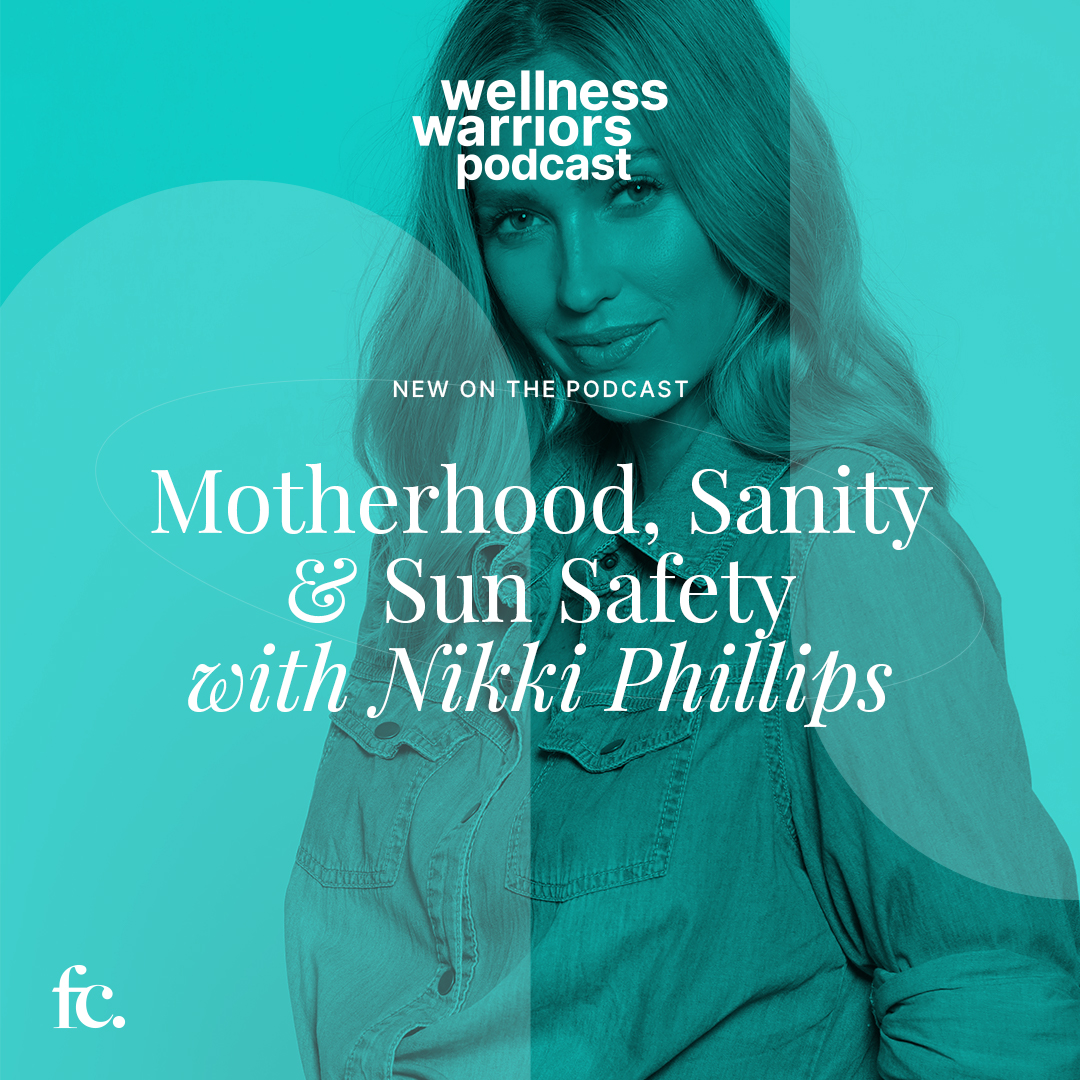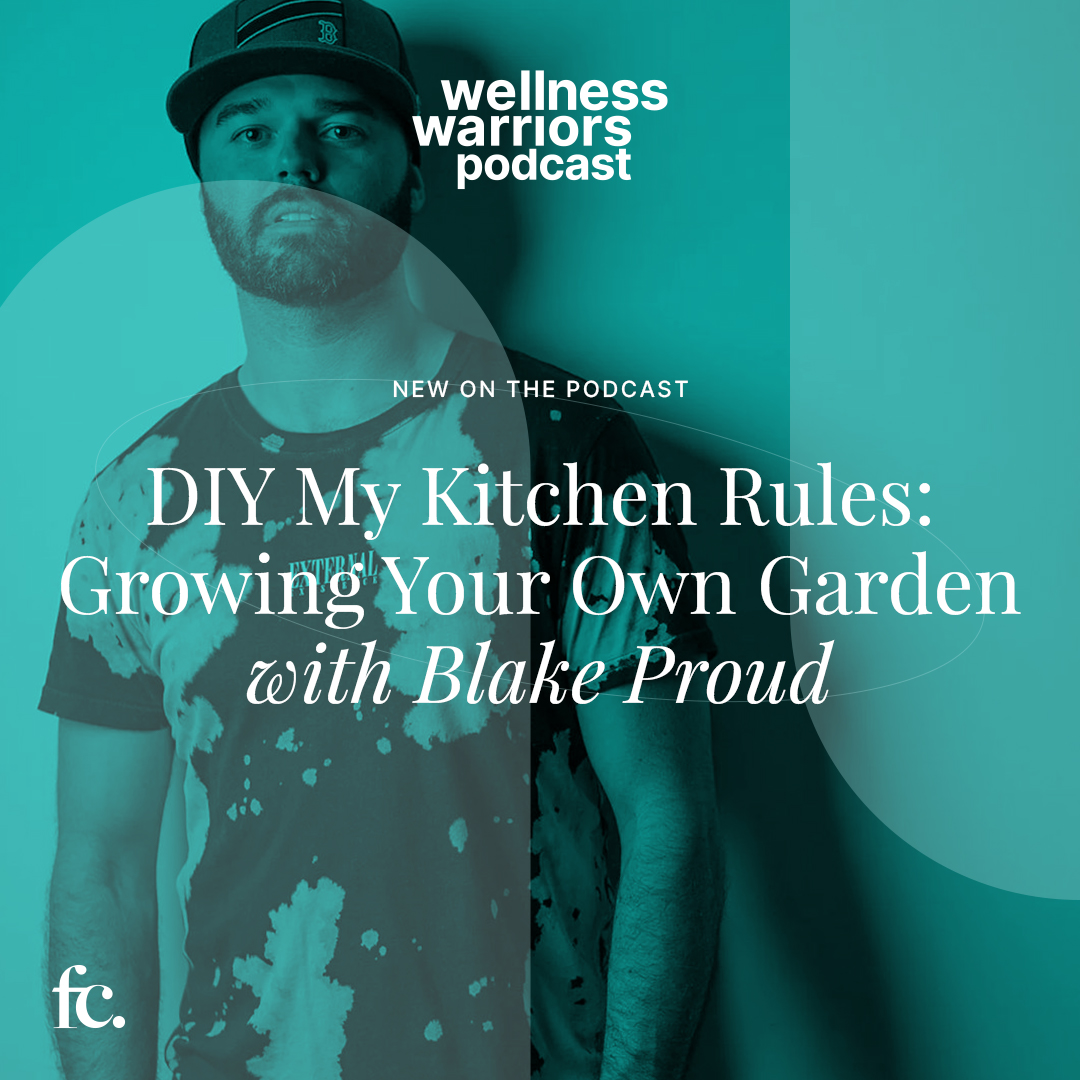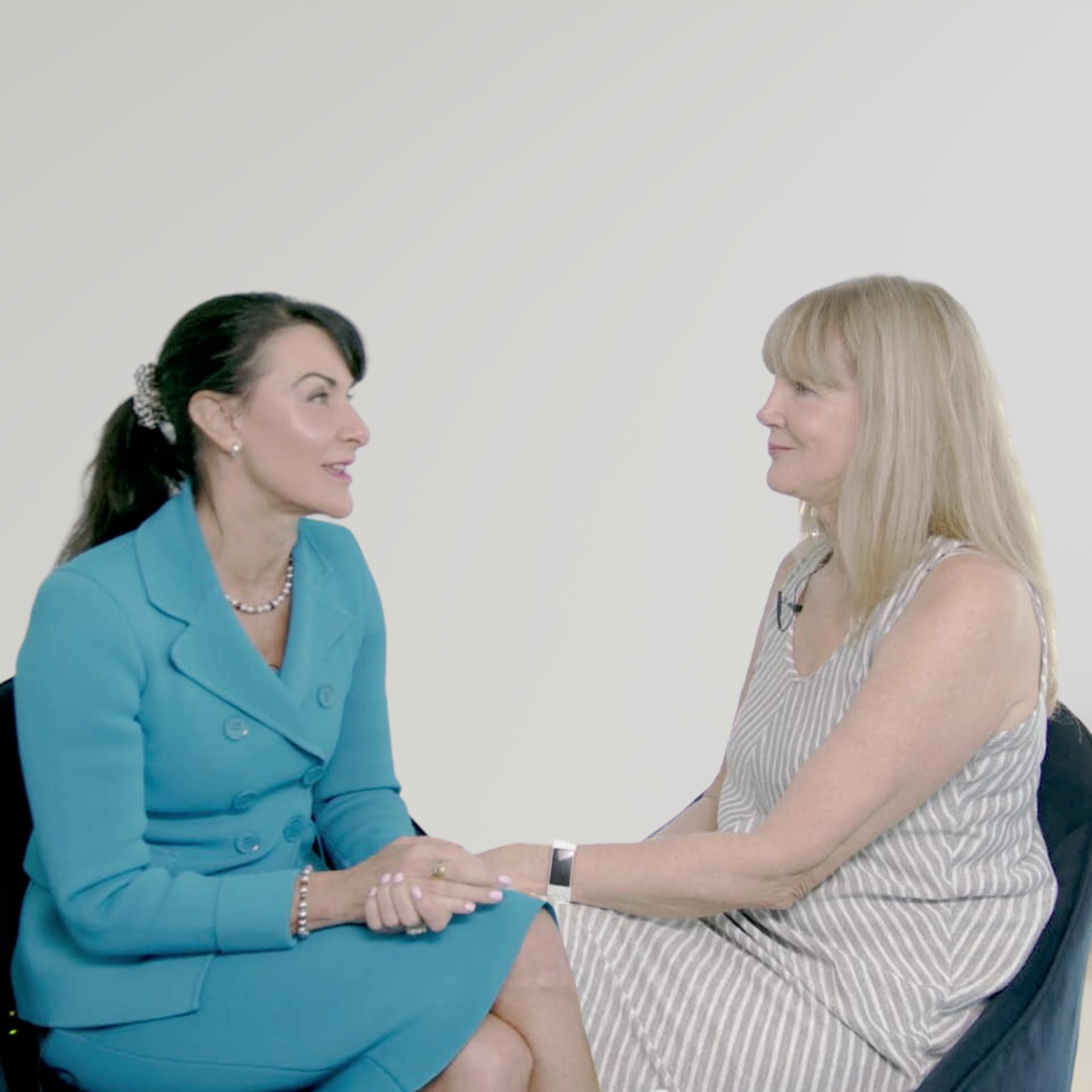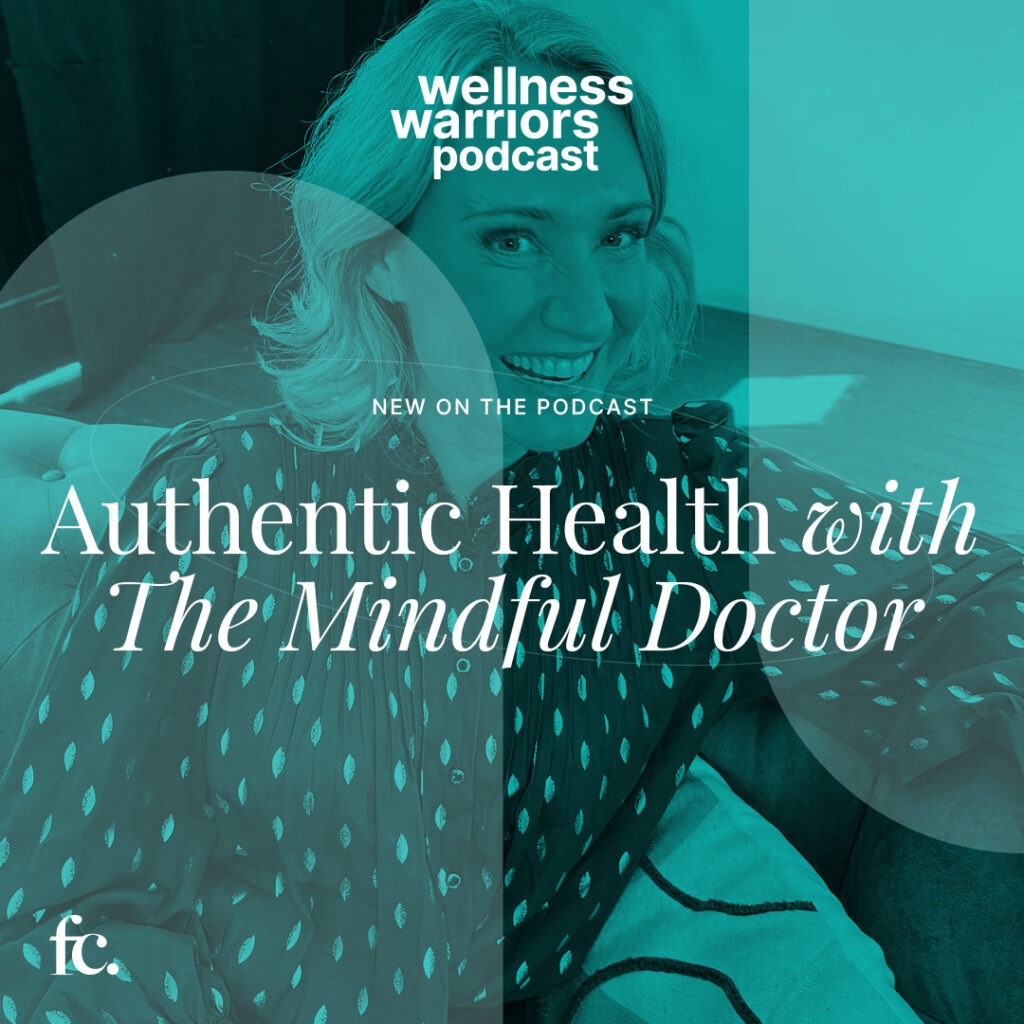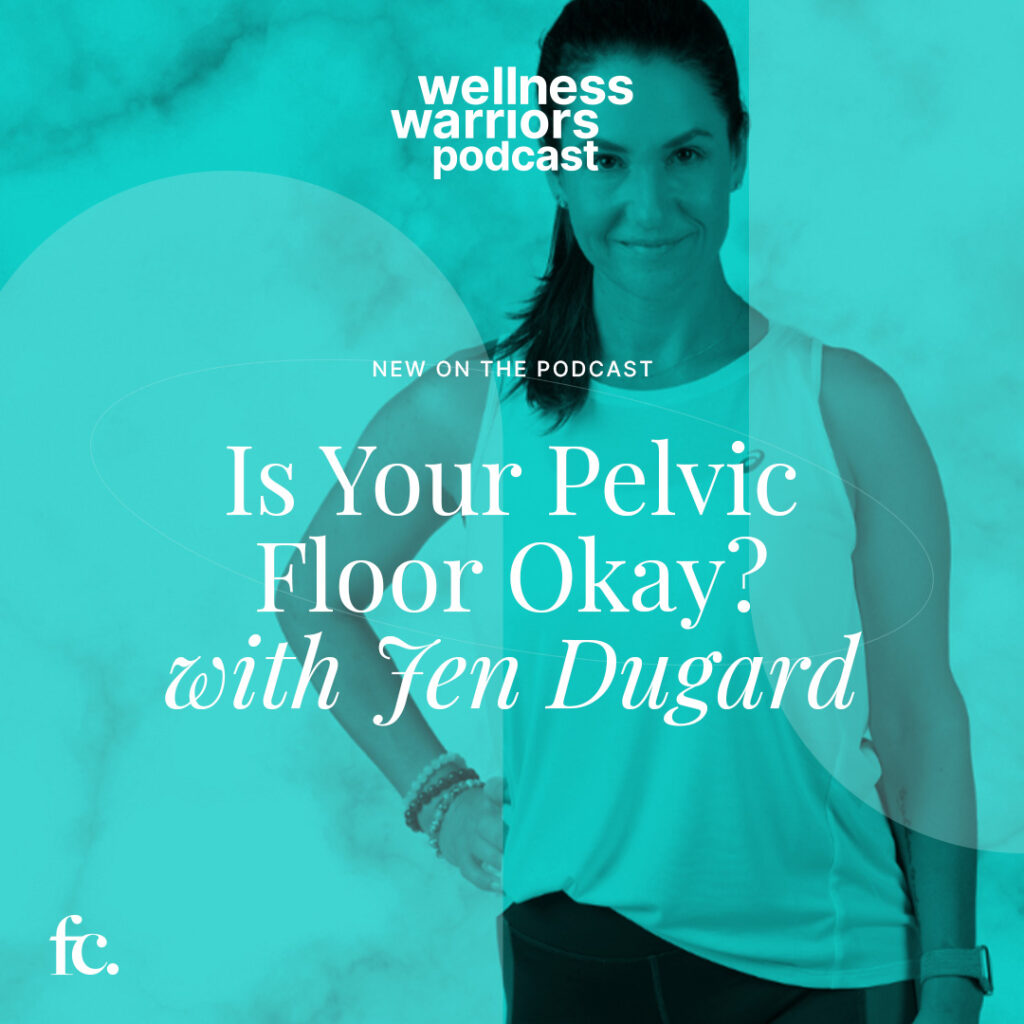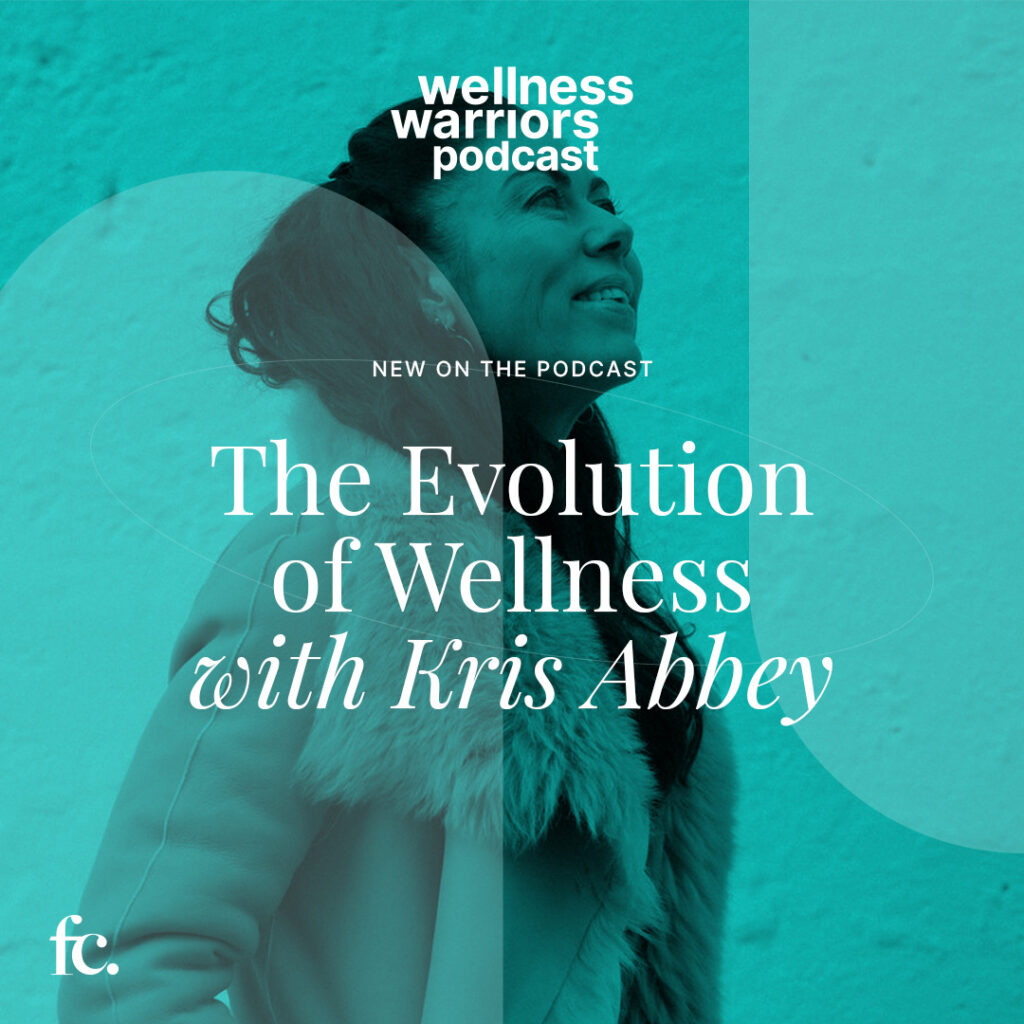Nikki Phillips is a media personality, MC, model, content creator and major talent. She has this enviable cool confidence that has seen her partner with leading brands on ambassadorships and advertising collaborations around the globe. Nikki is also a CEO, with her brand Rattle & Bones, focusing on sun protection for children. An episode not to be missed for any first-time parent!
Continue readingS02 E012: DIY My Kitchen Rules: Growing Your Own Garden w Blake Proud
You may remember Blake from My Kitchen Rules Season 10 on Channel 7, but his journey with food didn’t start there. Through a life of many hurdles, Blake shares what he has learnt over the years when it comes to his health and wellness, especially around the major health benefits of food, nutrition, and growing your own fruits and vegetables.
Continue readingEP28: Curing Disease Through Nutrition with Best Selling Author Dr Karen Coates
Curing Disease Through Nutrition with Best Selling Author
Dr Karen Coates
Dr Karen Coates is an internationally respected integrative medical doctor and naturopathic physician. As a medical advisor to some of Australia’s highest-profile celebrities and elite athletes, Dr Coates has over 30 years of experience in the health arena, with degrees in Medicine and Surgery, postgraduate qualifications in Obstetrics, Nutritional, and Environment Medicine.
An advocate for self-responsibility in health, she has a passion for teaching and a gift for explaining complex health concepts in easy-to-understand terminology, which she goes into detail in this episode. Dr Coates covered the five foundational pillars of wellbeing which include nourishment, movement, stress management, sleep and minimising toxins. Her work now aims to provide longterm solutions instead of fad diets to cure Hashimoto disease, type 2 diabetes, obesity, heart disease, cancer, sleep apnoea and stress.
Dr Coates has a daughter with polycystic ovary syndrome (PCOS). It was their journey together that became the foundation of her unique management plans for women with PCOS. This inspired her to write the bestselling women’s health book ‘Embracing the Warrior’ – an essential guide for women and has been teaching women proven paths to PCOS wellness.
Get to know more about your health through DNA and let Dr Coates provide the best solutions to optimal wellness here https://www.drkaren.com.au/shop.

Show Notes:
Question – At what point in your career did you start to think about things that might not have been within the traditional scope of the normal general practitioner’s lifestyle?
1:10 – I had a couple of incidents with patients where my mind was open to the possibility that there were other ways of treating them. One woman had symptoms of bladder urgency, and I thought she had a urinary tract infection. Turns out I was right but when I contacted her to come to pick up her prescriptions, there was a pause on the end of the line. She took the courage to say no, and that she would look into alternative options. She decided to see a Chinese herbalist and when her results came back after a few weeks, her urinary track was completely cleared. For someone with a medical mind, it really shook me. That’s when I contacted her Chinese herbalist to start the conversation, which then lasted for years as I studied alternative options to prescribed medication.
Question – When a lot of people think integrative medicine, what does that actually mean?
5:02 – Integrative medicine is choosing the best of both worlds, but as a medical doctor, my decisions are always based on facts. For example, when treating mild, to moderate depression, often I will prescribe medical marijuana rather than prescription medicine, which has the same results with less harm. With saying that though, there are some circumstances you have to bypass the natural and go straight to the medicine because it’s the right decision for that particular clinical scenario in that person.
Felicity – Can those things sometimes work in combination?
6:51 – Sometimes interactive doctors forget about basic biochemistry, both naturopaths and doctors should know when is the right time to take prescribed medication and how they’ll interact with one another. At the end of the day, let’s say you’re zinc, iron or vitamin D deficient, you’re unable to make these hormones that support mood and reduce anxiety, so if you’re not fuelling your body with the right foods, you’re not going to get the optimal results through prescribed medication and natural medicine.
Question – What do you think about using things like IV nutrient therapies? Is that something that you feel is relevant and worth exploring further?
9:15 – When looking at someone who is struggling to maintain their body weight, often it’s not a case of being malnourished, but they are micro malnourished, so they are unable to absorb the sufficient trace minerals to support everything their body needs. IV nutrient therapy and oral supplements are great ways to fill in those nutritional gaps when you’re working on diet and nutrition, whether the goal is weight loss or optimal wellness.
Question – What other kinds of nutrition can we look at to help someone stabilise their mood?
10:30 – For women, most commonly we will look into iron deficiency especially with heavy periods. Another one to look at is magnesium deficiency, when checking a patients blood test, I will look at their red cell magnesium results, as the red cells are where the action happens in immune support for the body. IV nutrient therapy is a great way to have those nutrients go directly into the bloodstream, giving your body a kickstart for the biochemical pathways, from there, once the body starts to feel well, it can give you the motivation to continue your journey towards a healthier you. When someone is overweight, their bodies are inflamed, and that will actually chew up most of those micronutrients, so when trying to lose weight, you’re food intake is restricted, so IV nutrient therapy is a great way for the body to get those micronutrients, minerals and vitamins we need.
Question – Why was that such an important element and why should we think about selenium as being important in our diet?
12:22 – Most of the soils in Australia are selenium deficient, and also boron deficient and lacking a few other little trace minerals, but selenium from the point of view of weight management is a really important player for thyroid support. When it comes to weight management, selenium and vitamin D are major players, not only do they support good health, but also the thyroid which is your metabolic system.
Question – What do you think has given rise to such an increase in all of these thyroid and metabolic type conditions?
13:39 – There is no evidence yet to answer that question, but one thing I do know for sure is that, if we’re not nourishing the thyroid cells in our bodies, our immune system is more likely to be attracted to an unhealthy thyroid cell tag, which attracts our immune system to that cell in order to get rid of it. We currently have a big issue in our society when it comes to auto-immune issues, like Hashimoto’s and inflation of the thyroid, these issues prevent the thyroid from producing any of the hormones that we need, something I have seen more commonly in women over the past decade. At the end of the day it all comes down to diet, especially for those on a restricted diet, paleo for example, over time you will become deficient in those macro and micronutrients like iodine.
Question – I think also for so many people, they think, okay, I’ve got maybe Hashimoto’s or I’ve got type two diabetes, but it’s under control because I’m on medication. Where do you think the trap is there, and how do we get people to understand that that’s not a good place to stay in?
15:52 – I think there is a difference between how your body is behaving and what your blood results show. You could have the perfect blood sugars results and still be at risk of long-term medical issues, like type 2 diabetes, especially if you’re not nourishing your body well, or being active. And those on restricted diets for long periods of time can have their bodies go into starvation mode in an effort to survive the famine that they have created internally through restricted food intake, most commonly is with calorie restriction.
Question – I’m so interested to hear your definition and your take on how we should actually interpret pathology. What does that look like and how did the pathology labs set that standard deviation in terms of how that’s read. Can you give us a bit of a rundown on your take on pathology?
18:12 – Pathology results are determined by population averages, rather than optimal wellness, and these are conducted by each nutrient, so when people come in for testing they usually are already deficient, so that then determines the low and high end of the reference range. When I first started in the eighties, zinc deficiency for example was between 15 to 35, nowadays it’s between 9 to 19, so back then if your zinc results came in at 10, you would be classified as zinc deficient, but today you would be in the range, so over the years these results get cross-referenced and changed again. This is something that we’re seeing time and time again with these really important nutrients to determine long-term health and wellbeing.
Question – How do we challenge that, what do we do next?
20:41 – I think it’s best to make sure you’re in that top 10% of the range when you get your blood results. Vitamin D for example, the minimum is 40, so if you hit that, you’re classified as fine, but that just means you won’t suffer from rickets which is a terrible deformity of your bones, but for women with menopause, if they hit 75, they’ll be losing bone density much more rapidly then other women who have hit 100. It’s best to find that sweet spot, at the end of the day you don’t want too much or too little of something.
Question – That’s so relevant and a great lesson for all of us to be really mindful of how we interpret the pathology results. To also take control of that and take some action and to explore it and to really think it through, optimal well-being obviously being the one thing that all of us would like to achieve for longevity and living well.
22:21 – I think the problem that we have, and having been a very mainstream medical doctor for a lot of my career, is that our job is to diagnose disease and to treat disease. We very rarely have the luxury of spending sufficient time to actually give the message of preventive medicine and lifestyle changes as well. If optimal wellness is what you’re after, it’s best to find an integrated doctor than can give you an hour of their time or a naturopath, rather than expect your GP to put aside that time to focus on preventative health.
Question – Something else that you talk about a lot that I would really like to touch on are sleep, stress and sugar. These are three things that I think that we are all so impacted by, first of all with sleep.
25:05 – It’s a vicious cycle, say you don’t get enough sleep, the next morning you will go straight for a cup of coffee to get you through the day, but those dealt a poor genetic card in regards to caffeine metabolism, that one shot of espresso can still interrupt sleep 17 hours later because their bodies naturally are unable to to get rid of the caffeine. Developing a restorative sleep pattern is really important and can be achieved through herbal strategies and lifestyle changes, those changes I like the call the ‘five fundamental pillars of wellbeing’ which include, nourishment, movement, stress management, minimising toxins and of course sleep.
Question – I like people to start thinking well beyond their forties and fifties when they’re talking to us because I feel that a lot of people don’t have that vision of where they’re going to be at 70+ early enough.
27:19 – We work hard to save all this money for retirement, but if you haven’t got your health, you won’t be able to enjoy it. So you really need to start looking at your health and health maintenance as early as possible, and I would like to see that in people in their twenties. In my practice, I have noticed more of the younger generation trying to find ways of dodging blood pressure, heart and diabetic medications that they see commonly used by their parents. It’s also good to keep in mind the environment you are exposed to, when I lived in the USA for 12 months, I gained 14kg, even though I was still heavily active and eating the best I could, if you don’t have access to the best food, ultimately you don’t have a chance for the best outcome.
Question – Is that the unfortunate trend that you’ve seen when you remember life in your family growing up that eating clean was fairly normal?
30:01 – Growing up it was meat and three vegetables and if you’re lucky a dessert once a week. Once in America, I noticed that the style of eating was more instant and on the go, like breakfast, for example, would be Pop Tarts, it was high energy food, even when I had a salad, it would be drench in thousand island dressing. Luckily I had learnt what good health and good food choices from a young age, so I never had any issue with weight management.
Question – That really confirms the saying that we hear a lot, that you can’t out train a bad diet.
31:09 – Somewhere along the line, that nasal metabolic dial has been turned down, especially with women. You could have great training with a balanced diet but to really achieve weight management, you have to adapt and be able to make those healthy lifestyle changes.
Question – Tell me about your story and how you came to drive a program to support women with PCOS?
32:08 – It started with my personal experience after a diagnosed my daughter with polycystic ovary syndrome (PCOS). She started showing symptoms around 14 or 15, and it was confirmed once she was 18, so I started looking into options that didn’t involve medication, because at such a young age I didn’t want her to become dependant on prescribed medicines. One of the biggest ways to help with PCOS is weight management and healthy food and lifestyle choices, then to figure out the potential genetic origins. History shows the PCOS started in a woman thousands of years ago, which stems from survival at a certain stage of human existence, through times of long-term drought, famine and war. These women would be the last ones standing as they weren’t falling pregnant during bad environmental times, but when things were good and they were able to fall pregnant again, they passed those genes on to the next generation.
Question – Do you have a preference for a certain style of eating? We know that Mediterranean diets are a very popular way of eating or a style of eating, do you have a personal preference for something that you believe really encourages optimum wellbeing?
36:45 – The first thing I would look into is your ancestral heritage, someone from Europe or the United Kingdom would be suited for a Mediterranean diet, but I wouldn’t advise that for someone with an Asian background because our genes are set up to deal with food in a different way. For example when South American dietitians introduced high legume and bean diets to Australians, basically it only caused distress as our gut, and the microbiome is not set up to be able to digest such a high intake of legumes and beans. When we look at diet, it’s best to eat right for your genes rather than eat right for your blood type, and to take what is best from what country of origin you’re dealing with. If I was to give general advise in terms of diet, I would suggest that you eat 650 grams of green vegetables daily, it sounds a lot if you’re trying to achieve that with lettuce alone, but it can easily be achieved with things like cabbage, broccoli and cauliflower. The second thing I would advise is that deep-fried foods should never be a part of a healthy diet, regardless of whether you’re genetically prone to inflammation, we know that when consuming deep-fried foods, that inflammation can last for days after consumption.
Question – When we look at what’s happened in Southeast Asian populations and the introduction of a Western diet, even just looking at dairy, because they’re so often dairy intolerant, and now we see these high incidents of type two diabetes in India, for example.
41:05 – Just recently there was a research article on Tanzanians, where they studied chronic disease in tribes on a natural diet compared to those relatives that had moved to the city, and by definition was starting to get into that processed, fast-food diet. Within four years of moving from village life to urban life, they had basically the same incidence of type 2 diabetes and other chronic illnesses.
42:46 – For me, wellness means that you’re able to get out of bed and move your body, regardless of age and disabilities, but to be able to move the way you want to, and to have a buoyant and optimistic approach to whatever lays ahead.
Question – What do you think are some of the barriers that people are dealing with right here and now in terms of having that notion of what functional fitness looks like for the future?
43:38 – We do too much sitting! It’s not just about going to the gym, it’s about moving your body, taking that time here and there to just get up and move around a bit, get some fresh air, and walking. Take those opportunities to move and apply it to your day so you are functionally moving a lot more.

